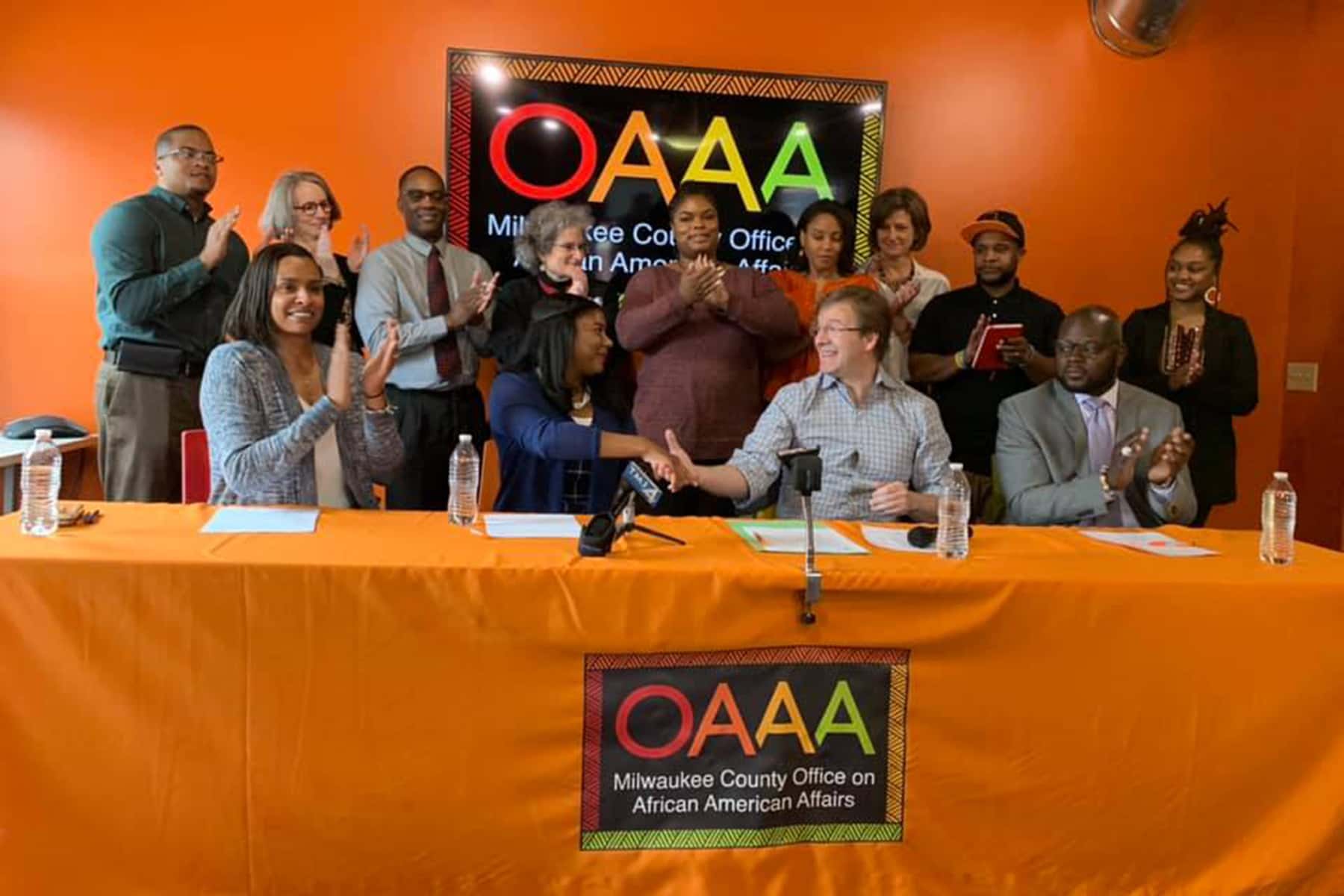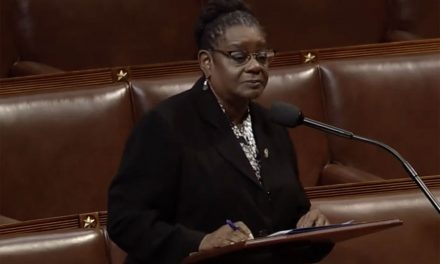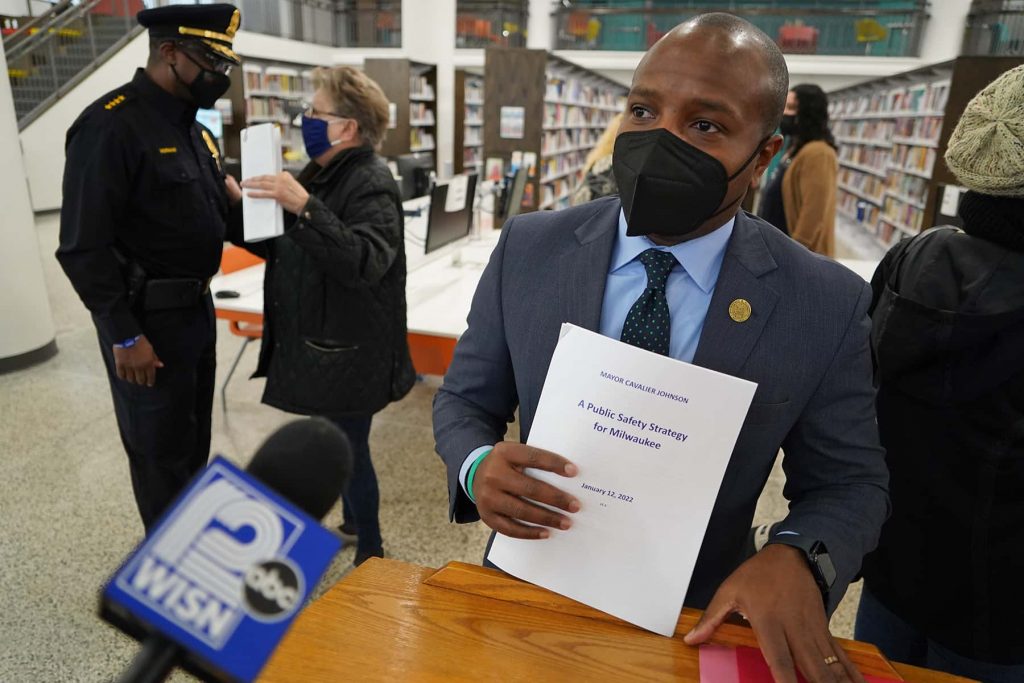
County Executive Chris Abele today joined Supervisor Marcelia Nicholson, Supervisor Supreme Moore Omokunde and the Office on African American Affairs (OAAA) signed the resolution declaring racism a public health crisis on May 20.
The resolution builds on the county’s efforts to ensure racial equity is part of the public discourse and in the decision making process.
“Racism is a public health crisis, and we have a moral imperative to put our indifference aside in the face of injustice,” said County Executive Chris Abele. “The resolution builds on the county’s approach to advance equitable practices – from health care to housing to economic stability. The measures we are taking will ensure every resident in every neighborhood benefits.”
The resolution was introduced by the County Executive and Supervisor Nicholson, and co-sponsored by Supervisor Supreme Moore Omokunde and Supervisor Deanna Alexander. The resolution holds the county to:
- Assess internal policies and procedures to make sure racial equity is a core element of the county;
- Work to create an inclusive organization and identify specific activities to increase diversity.
- Incorporate inclusion and equity, and offer educational training to expand employees’ understanding of how racism affects people;
- Advocate for policies that improve health in communities of color; and
- Encourage other local, state and national entities to recognize racism as a public health crisis.
The resolution supports the county’s commitment to racial equity and changing systems and institutions that affect community health. Across the country, racism has been linked to a number of health problems, including high infant and maternal mortality rates for African Americans. The resolution builds on the county’s approach to promote equitable practices to ensure all residents have access to safe health care solutions.
“It is crucial to acknowledge the presence of systemic racism in Milwaukee County,” said Supervisor Marcelia Nicholson. “When we acknowledge that it exists and work towards dismantling it, we as a community can begin to heal each other and move forward towards long-lasting prosperity.”
Under the County Executive’s leadership, OAAA was created in 2016 to initiate a long-term effort to improve the condition of Milwaukee’s African American community. By 2019, OAAA will train more than 5,500 employees in racial equity.
The program, already underway, ensures people at all levels are trained to help move the conversation into action and look at public and private systems through a racial equity lens. The office serves as an integral role in recognizing and resolving the County’s racial inequities for the benefit of all its citizenry and for the region to achieve its full potential.
“Empowering our leaders to push for change is the next step towards creating equity and transformation in Milwaukee County,” said Nicole Brookshire, Director of the Office on African American Affairs. “Racial equity is not an issue that we will solve in one day, or one year. We are taking small steps, having big conversations and implementing vital measures to address the problem head-on and move towards a more equitable Milwaukee.”
Milwaukee County is also working with the Government Alliance on Race and Equity (GARE) to train County employees on racial equity and create an inclusive Racial Equity Plan. The Racial Equity Plan will include elected officials at every level to ensure equity initiatives address racial bias in organizational culture and decision-making through the implementation and use of racial equity tools, trainings and evidenced based models.
OAAA aims to improve racial equity in: operations, fiscal appropriations, IS systems, policies and programs, legislation, workforce, organizational culture and community engagement. OAAA works to empower the African American community to achieve positive, long-term, sustainable outcomes through employing a multi-faceted model that will convene county and community partners to systematically address issues across the entire county.
© Photo
Office on African American Affairs (OAAA)














